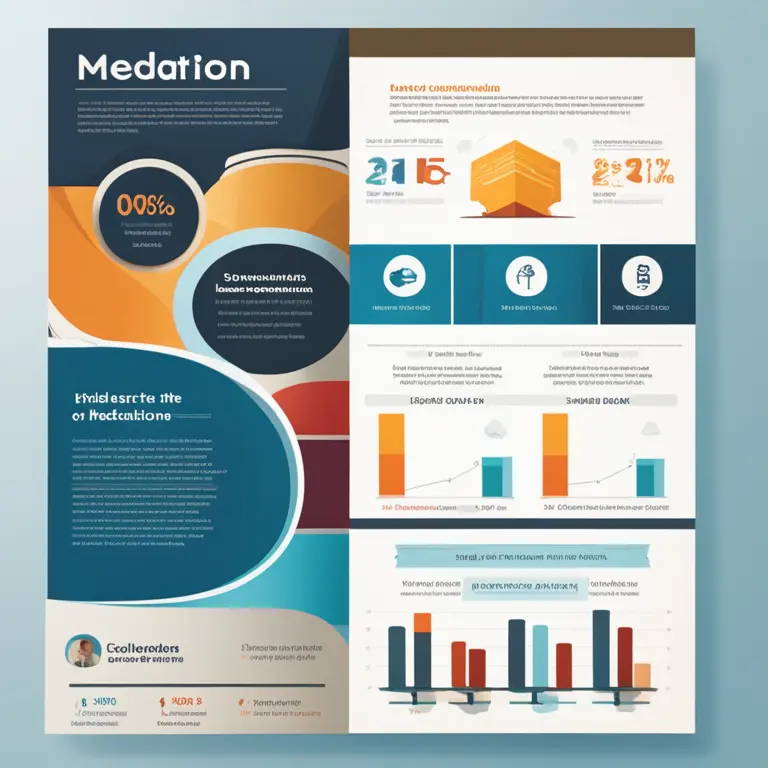
Meditation's Impact on Blood Pressure Control
Explore the connection between regular meditation practice and its potential benefits on lowering and managing blood pressure, enhancing cardiovascular health.
article by Hina Kurosawa
The Calming Effect of Meditation
Meditation is a millennia-old practice, but its benefits on modern health concerns, such as hypertension, are continuously under scrutiny by the medical community. Recent studies suggest meditation can contribute to lowering and maintaining blood pressure. It invokes a relaxation response, which is the opposite of the stress-induced 'fight or flight' reaction, known to drive up blood pressure. By promoting relaxation and decreasing stress, meditation has shown promising results in preventing and managing hypertension, a leading risk factor for cardiovascular diseases.

Mind-Body Connection in Hypertension Management
The mind-body connection is a fundamental aspect of holistic health approaches, with meditation standing out as a key practice. This connection emphasizes the impact psychological and emotional states can have on physical wellbeing. When individuals meditate, they enter a state of deep rest, which can lower stress hormone levels, reduce inflammation, and aid the body in regulating blood pressure naturally. Recognizing this interconnectivity, many healthcare providers now include meditation as a complement to conventional treatments for hypertension.

Evidence-Based Benefits of Meditation
As research evolves, evidence highlighting meditation's ability to benefit cardiovascular health becomes more robust. For example, a study conducted in 2024, revealed that participants who practiced meditation regularly had significant reductions in systolic and diastolic blood pressure. This suggests that with consistent practice, meditation can play a key role in the non-pharmacological management of blood pressure.

Types of Meditation for Blood Pressure Control
Various forms of meditation exist, but not all are equally beneficial for blood pressure control. Techniques such as mindfulness meditation, transcendental meditation, and breathing-focused practices have been specifically recognized for their positive impact on cardiovascular health. These meditative forms encourage a state of awareness and focused breathing that enhances relaxation and stress management, consequently influencing blood pressure levels.
Incorporating Meditation Into Your Routine
For those considering adopting meditation for blood pressure control, the key is consistency and patience. Starting with as little as 10 minutes a day can make a difference. Gradually increasing the duration can enhance the practice's effectiveness. It is crucial to create a peaceful environment and choose a method that aligns with one's preferences and lifestyle, which will support long-term adherence and maximize health benefits.
Scientifically-Supported Practices for Holistic Health
Meditation's role in managing blood pressure is supported by growing scientific scrutiny. Integrating meditation into a comprehensive health strategy that includes proper diet, regular exercise, and stress reduction can provide a synergistic effect, promoting not just better blood pressure control but overall health. As meditation becomes increasingly recognized in the medical field, it holds promise as a valuable adjunctive therapy in the battle against hypertension.
Published: 1/15/2024
Modified: 1/15/2024
More predictions
Come back here soon to learn more about yourself and your future


Mindfulness & Meditation: A Guide for High Schoolers
Discover the benefits of mindfulness meditation tailored for the hectic life of high school students, and learn simple strategies to incorporate it into the daily routine.


Healing Through Mindfulness: Meditation & Trauma Recovery
Mindfulness meditation offers a powerful tool for individuals seeking solace and healing from traumatic experiences. Discover how this practice can aid in the journey towards inner peace.


Mindfulness Meditation: A Handbook for High Schoolers
Discover how mindfulness meditation can benefit high school students, enhancing focus, reducing stress, and promoting overall well-being.